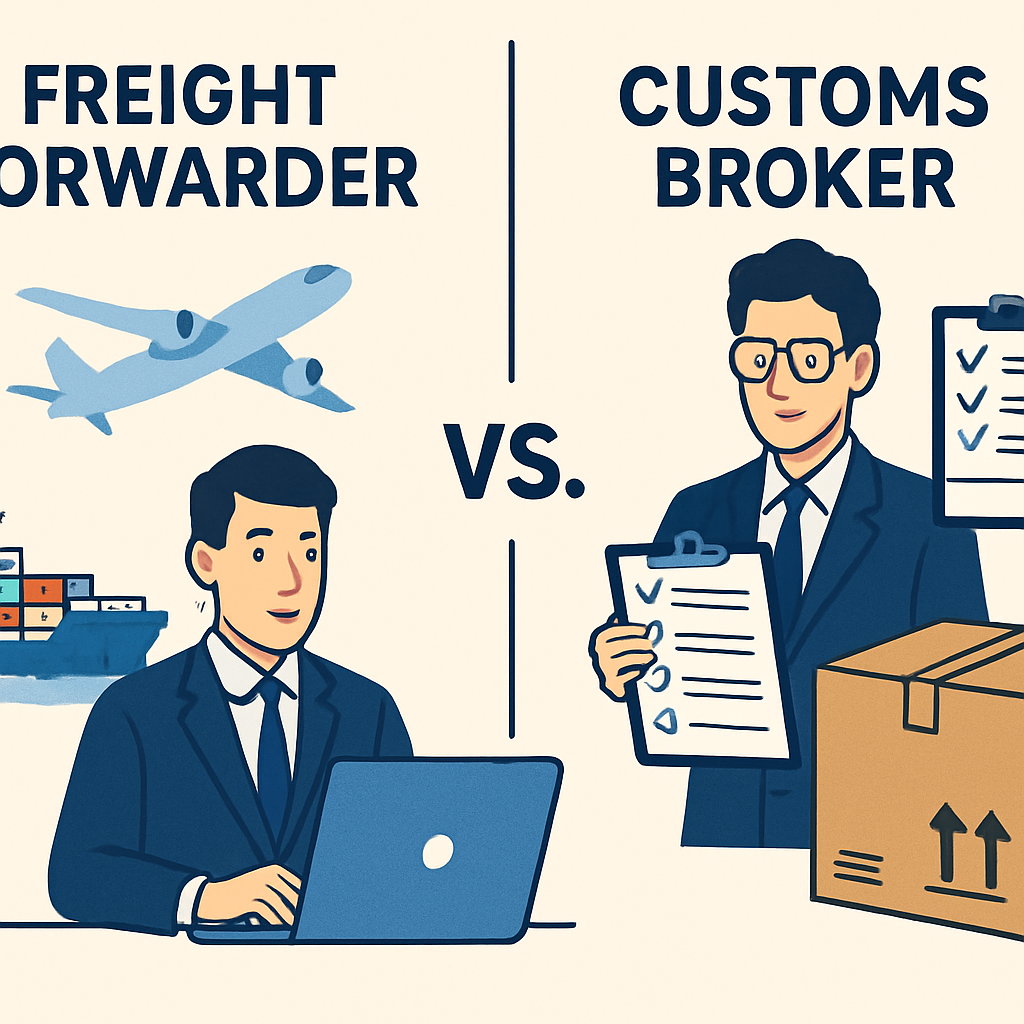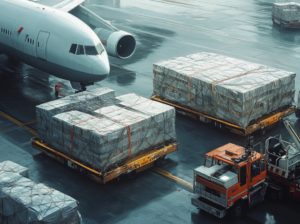Freight Forwarder vs Customs Broker Malaysia: Key Differences for Corporate Professionals
In Malaysia’s bustling trade environment, corporate professionals responsible for logistics and supply chain management regularly confront the challenge of ensuring goods move smoothly across borders. Choices made in selecting the right partners can make the difference between a seamless supply chain and costly operational disruptions. Two vital roles, often misunderstood and sometimes conflated, are the freight forwarder and the customs broker. For companies engaging in international trade, understanding the freight forwarder vs customs broker Malaysia landscape is critical for maximising efficiency, compliance, and profitability.
This comprehensive guide unpacks the major distinctions between freight forwarders and customs brokers, tailored specifically for corporate professionals seeking clarity. Drawing from local regulations, industry data, and firsthand business experiences, we’ll address how customs clearance Malaysia works, the roles of a customs broker Malaysia and an import agent Malaysia, and provide actionable strategies for making optimal choices in your logistics operations.
Table of Contents
- Introduction: The Crucial Distinction for Effective International Trade
- Understanding Freight Forwarders
- Understanding Customs Brokers
- Freight Forwarder vs Customs Broker Malaysia: Key Differences
- Case Studies: Learning from Malaysian Corporate Experiences
- Making the Right Choice: How-To for Corporate Logistics Teams
- Practical Tips for Corporate Professionals
- Common Myths and Frequently Asked Questions
- Conclusion: Strategic Supply Chain Success in Malaysia
1. Introduction: The Crucial Distinction for Effective International Trade
International trade is the backbone of Malaysia’s economy. With total trade reaching RM 2.85 trillion in 2023 (Department of Statistics Malaysia), Malaysian companies are shipping and receiving goods across the globe at an unprecedented rate. Yet, regulatory controls and logistical complexity pose significant hurdles, especially when choosing the right partners for customs clearance Malaysia and freight movement.
Mistaking a freight forwarder for a customs broker (or vice versa) is a common error, leading to missed deadlines, non-compliance fines, or even cargo seizures. For corporate professionals managing import/export operations, a clear comprehension of each role—and when both are needed—is indispensable. This article will help you:
- Identify the specific roles and core competencies of freight forwarders and customs brokers
- Understand how these players interact with the Malaysian regulatory landscape
- Leverage best practices and real-life case studies to avoid costly mistakes
2. Understanding Freight Forwarders
Role Definition and Scope in Malaysia
A freight forwarder acts as a logistics architect, managing and coordinating the entire shipping journey from point of origin to final destination. In Malaysia’s context, this means collaborating with multiple local and international carriers, warehousing providers, and handling import/export documentation. Freight forwarders often serve as the single point of contact for shippers, orchestrating complex shipments that may involve several modes of transport (sea, air, land, rail).
Who Typically Engages a Freight Forwarder?
- Multinational manufacturers and exporters/importers of bulk goods
- SMEs lacking in-house logistics capabilities
- Companies seeking cost savings through consolidation or optimized routing
Typical Services Offered
Malaysian freight forwarders generally offer a comprehensive suite of services, such as:
- Multi-modal Transportation Arrangements
- Warehousing & Consolidation
- Shipping Documentation
- Cargo Insurance
- Inventory and Order Management
- Customs Coordination (in conjunction)
Local Examples and Scenarios
Scenario 1: Large-Scale Electronics Export
A Penang-based electronics manufacturer regularly exports shipments to five countries. They engage a freight forwarder to:
- Book ocean freight from Port Klang
- Arrange land transport to the port
- Handle warehousing for split shipments
- Provide tracking for real-time updates to sales teams abroad
Scenario 2: SME First-Time Exporter
A food processing SME in Johor wants to send its halal products to the Middle East. A freight forwarder provides:
- Advice on optimal shipping mode
- Documentation support for halal certification and health standards
- Warehouse storage at Port of Tanjung Pelepas
- Insurance coverage for perishable cargo
Value to Corporate Professionals
By acting as a single point of contact, freight forwarders simplify cross-border shipments, allowing logistics teams to focus on core operations rather than the minutiae of transport arrangements.
3. Understanding Customs Brokers
Role Definition and Legal Standing
A customs broker Malaysia is a licensed specialist focused on regulatory compliance, import/export documentation, and communication with government agencies—primarily the Royal Malaysian Customs Department (RMCD). They ensure shipments clear customs quickly, accurately, and in compliance with Malaysia’s customs laws.
Statutory Requirement
- Only individuals or entities licensed under the Customs Act 1967 can provide customs brokerage services.
- Non-licensed individuals cannot submit customs declarations on behalf of customers.
Core Services and Compliance Requirements
- Preparation and Submission of Customs Declarations
- HS Code Classification
- Duty and Tax Calculation
- Compliance Consultancy
- Customs Inspections Coordination
- Legal Representation
Local Examples and Scenarios
Scenario 1: Garment Importer with Repeated Delays
A Kuala Lumpur-based apparel importer faces customs holds due to inconsistent HS code declarations by their in-house team. Engaging a licensed customs broker brings:
- Guidance on garment tariff codes
- Faster processing through e-customs
- Reduced clearance times and avoided storage charges
Scenario 2: Pharmaceutical Import Compliance
A Selangor-headquartered pharmaceutical distributor needs to import controlled medicines. The customs broker:
- Arranges import permits from the Ministry of Health
- Ensures timely compliance and shipment release
Value to Corporate Professionals
Given Malaysia’s strict regulatory environment, customs brokers prevent costly fines and the reputational risk of non-compliance. Their expertise simplifies and secures the customs process.
4. Freight Forwarder vs Customs Broker Malaysia: Key Differences
Functional Comparison Table
| Aspect | Freight Forwarder | Customs Broker |
|---|---|---|
| Primary Focus | Logistics, transportation, supply chain management | Regulatory compliance, customs clearance |
| Licensing | Not required by customs; may need MITI or port registration | Mandatory RMCD license (Customs Act 1967) |
| Key Activities | Shipment bookings, warehousing, insurance | Filing declarations, tariff classification, customs duty calculation |
| Customer Interaction | Shippers, consignees, exporters, importers | Importers/exporters (document and compliance focused) |
| Customs Clearance | Can coordinate, not declare (unless licensed) | Fully authorized for customs procedures |
| Legal Responsibility | Shipment logistics and damage/loss | Accuracy in customs procedures, legal liability |
| Risk/Exposure | Delayed shipments, cargo issues | Fines, shipment holds, compliance failure |
Real-World Dividing Lines
Example 1: Large Retailer Importing Consumer Goods
- Freight Forwarder: Manages booking, storage, transport
- Customs Broker: Handles proper documentation and tax compliance
Example 2: FMCG Exporter
- Freight forwarder consolidates shipments
- Customs broker ensures export compliance and destination entry readiness
The Role of Import Agent Malaysia
An import agent Malaysia may facilitate sourcing, supplier coordination, and shipping arrangements, but cannot legally handle customs clearance unless licensed.
5. Case Studies: Learning from Malaysian Corporate Experiences
Case Study 1: Precision Engineering SME’s Mistake and Recovery
Background: Repeated penalties due to reliance on non-licensed partner
Resolution: Engaged customs broker; eliminated fines and sped up process
Key Takeaway: Assign customs duties only to licensed professionals
Case Study 2: Integrated Halal Export Success
Background: Difficulty coordinating halal certification and logistics
Solution: Used experienced freight forwarder and partnered customs broker
Impact: 22% shorter lead time, year-long delivery consistency
Case Study 3: Automotive Components Imported with Compliance Risk
Background: DIY customs clearance failed due to wrong tariff codes
Resolution: Hired customs broker; avoided further fines and scaled efficiently
Additional Anecdotes
- Electronics Distributor: Used integrated freight forwarder + customs team for peak delivery success
- Fashion Retailer: Customs broker prevented costly product rejection due to labeling issues
6. Making the Right Choice: How-To for Corporate Logistics Teams
Step-by-Step Approach
- Profile Your Cargo and Trade Lanes
- Assess Credentials
- Clarify Responsibilities
- Evaluate Technology
- Review Total Cost
- Run Pilot Tests
7. Practical Tips for Corporate Professionals
- Track RMCD updates for regulatory changes
- Pre-file customs documents for faster clearance
- Conduct yearly compliance reviews
- Train internal logistics and procurement staff
- Digitally store customs documentation
- Hold joint-planning sessions pre-shipment
- Flag poor performance early for management attention
8. Common Myths and Frequently Asked Questions
Myths
- Myth: Freight forwarders are always licensed for customs clearance
Fact: Only RMCD-licensed brokers can legally clear goods - Myth: Import agents manage full import life cycle
Fact: Only licensed customs brokers handle legal clearance - Myth: All providers offer similar service
Fact: Quality depends on expertise, tech use, and legal coverage
FAQs
- Q: Can I manage customs clearance internally?
A: Only if your staff includes a licensed customs broker. - Q: Is single-provider service cheaper?
A: Depends on context; lack of specialization may risk compliance. - Q: What if my agent can’t resolve customs delays?
A: You may lack legal defense without a certified customs broker.
9. Conclusion: Strategic Supply Chain Success in Malaysia
For Malaysian corporations operating in international trade, distinguishing between the services of a freight forwarder and a customs broker Malaysia is not just a matter of semantics—it’s a cornerstone of effective, compliant logistics management.
Key Takeaways:
- Freight forwarders manage logistics and transportation.
- Customs brokers ensure legal customs compliance.
- Best results often come from using both specialists—even under one provider or as a collaboration.
- Do not rely solely on import agents without confirming licensing.
- Use case studies, pilot tests, and regular reviews for optimum performance.
Action for Corporate Professionals:
Audit your logistics chain regularly—review not only the prices but the licensing, expertise, digital capabilities, and compliance history of both your freight forwarders and customs brokers. This will ensure reliable deliveries, lower risk, and sustained international trade success in Malaysia’s dynamic economy.
Ready to optimize your international shipments?
Start by mapping your current provider’s capabilities against the distinctions outlined here. Schedule a compliance review today and build relationships with both licensed freight forwarders and customs brokers for maximum peace of mind and operational excellence in every cross-border transaction.




